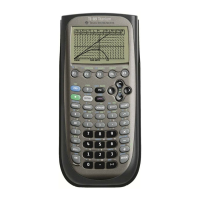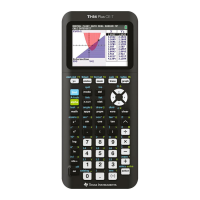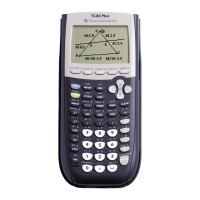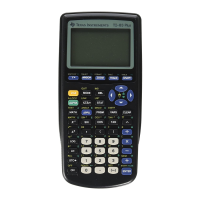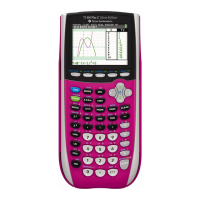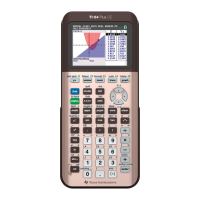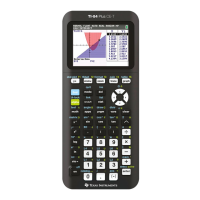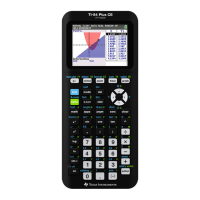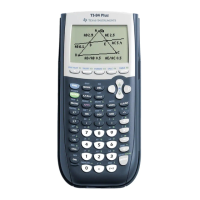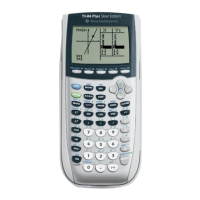94 Activities
Method 2: Symbolic Manipulation
Perform the following steps to solve the equation sin(x)=cos(x) with
respect to x.
Finding Minimum Surface Area of a Parallelepiped
This activity shows you how to find the minimum surface area of a
parallelepiped having a constant volume V. Detailed information about
the steps used in this example can be found in Symbolic Manipulation
and 3D Graphing.
Exploring a 3D Graph of the Surface Area of a
Parallelepiped
Perform the following steps to define a function for the surface area of a
parallelepiped, draw a 3D graph, and use the Trace tool to find a point
close to the minimum surface area.
1. On the Home screen, enter
solve(sin(x)=
cos(x),x)
.
The solution for x is where @n1 is any
integer.
2. Using the
ceiling( ) and floor( ) functions,
find the ceiling and floor values for the
intersection points as shown.
Note: Move the cursor into the history area
to highlight the last answer. Press ¸ to
copy the result of the general solution.
3. Enter the general solution for x and apply
the constraint for
@n1 as shown.
Compare the result with Method 1.
Note: To get the with operator:
@ Í
1. On the Home screen, define the function
sa(x,y,v) for the surface area of a
parallelepiped.
Enter: define sa(x,y,v)=2†x†y + 2v/x+2v/y
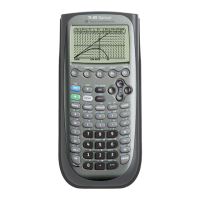
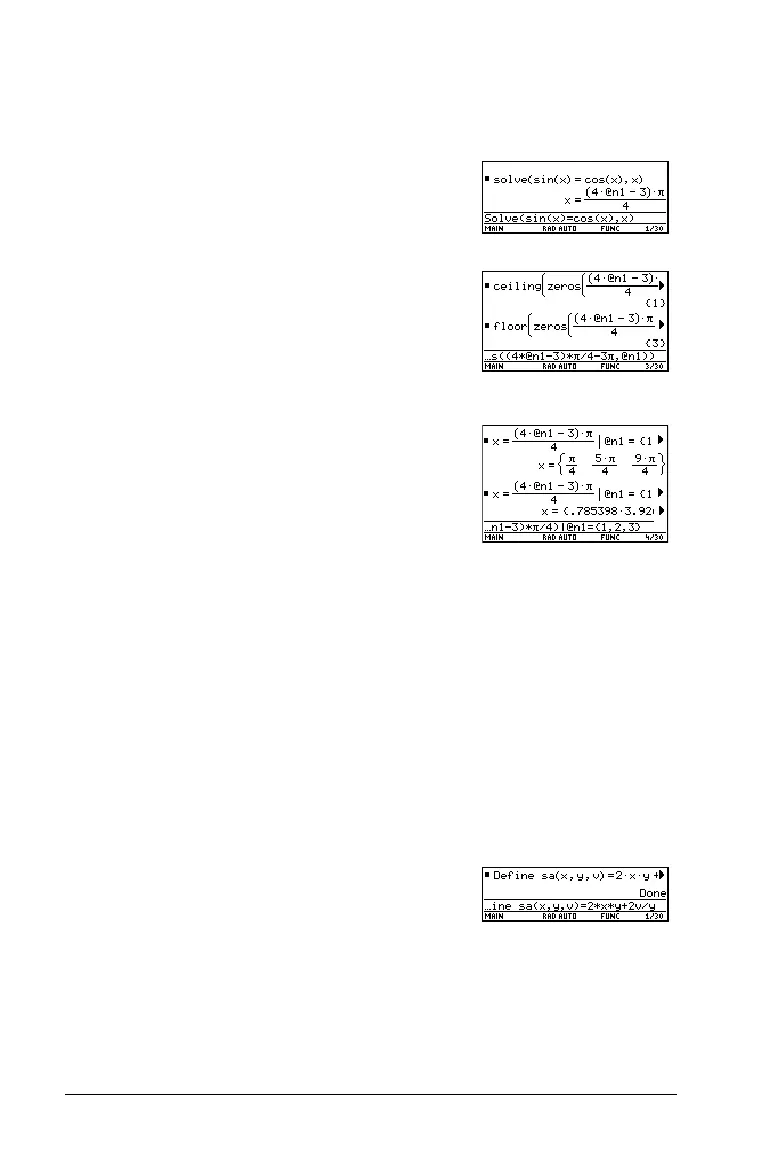